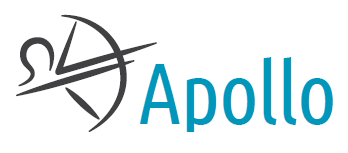Choice modelling is one the core methods of the applied economic sciences, including environmental, health, and transport economics.
This 2-day masterclass provides participants with an introduction to applied choice modelling using the Apollo software. Apollo is open-source software for estimating choice models available in the R computing environment. The master-class will focus on hands-on exercises using the open-source Apollo software for the estimation of choice models.
Stephane Hess is Professor of Choice Modelling and Director of the Choice Modelling Centre at The University of Leeds (UK). Stephane is a globally recognised leader in choice modelling with interests in behavioural models, travel behaviour, health choices, and decision making. His specific academic contributions include developing advanced choice models and empirical contributions across many fields. He is the editor of the Journal of Choice Modelling (the leading international, interdisciplinary journal in choice modelling), the chair of the International Choice Modelling Conference, and co-developer of Apollo (with David Palma, Leeds, UK), a widely used (open-source) estimation software for choice models.
This is a lab-based masterclass introducing students to the use of the Apollo software. The masterclass will be applied and place its emphasis on the implementation of the methods and models used by choice modellers and on the analysis and interpretation of choice modelling results; links to choice modelling theory will be made, but this is not the emphasis of the course.
The masterclass will introduce participants to the software and to the family of choice models estimable within Apollo. The focus will be “hands-on” exercises and estimating choice models using Apollo with data provided by the instructor. The masterclass will place particular emphasis on model estimation and interpretation. The exercises will span a range of application areas including environmental, health, and transport economics.
The target audience is primarily an academic one including university researchers, PhD students, and applied researchers from government agencies and departments.
Day 1
- Introduction to choice modelling in Apollo
- Estimation of multinomial logit and specification testing
- Analysis and interpretation of results
- Demand forecasting
Day 2
- Estimation of models with flexible error structures in Apollo
- Nested logit and mixed logit estimation
- Latent class models
- Hybrid Choice models
This is a lab-based masterclass. Participants will need to bring their own laptops.
Participants are encouraged to install the R software on their laptops before starting the masterclass.
Participants will require a priori knowledge of choice modelling theory.
It is recommended that this includes all the topics covered in the masterclass on choice modelling theory, Fundamentals of Choice Modelling.
There is no requirement for previous experience using R.
Note the 2-day masterclass, Fundamentals of Choice Modelling, will be offered immediately before this applied course (May 29-30 at UQ).
Hess, Stephane and David Palma (2019), “Apollo: A Flexible, Powerful and Customisable Freeware Package for Choice Model Estimation and Application, Journal of Choice Modelling, 32 (September).
Hess, Stephane and David Palma (2022), Apollo Version 0.2.8: User Manual. www.ApolloChoiceModelling.com.

